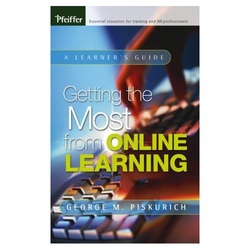Participation
Be prepared to do A LOT of reading and writing!
In our class there were approximately 2000 posts throughout the course! Simply reading posts is a form of participation - this could be considered equivalent to attending a typical class and listening to the discussion.
As an introvert, I normally do not like to speak up in a typical class environment; others in the class expressed a similar sentiment. The online environment is great at providing a forum for all voices to be heard. It is best to find a balance between listening and speaking.
In our class there were approximately 2000 posts throughout the course! Simply reading posts is a form of participation - this could be considered equivalent to attending a typical class and listening to the discussion.
As an introvert, I normally do not like to speak up in a typical class environment; others in the class expressed a similar sentiment. The online environment is great at providing a forum for all voices to be heard. It is best to find a balance between listening and speaking.

In creating this resource, I discovered a great book by George Piskurich called "Getting the Most from Online Learning" (2004).
In this book, Piskurich provides some useful strategies in participating in discussion boards. We discovered many of these items along the way in CTL1799 but here are some highlights of the helpful guidelines to consider as you prepare to participate in forums. While certainly intuitive, you realize how important they are when you are managing your time and efforts during the course.
In this book, Piskurich provides some useful strategies in participating in discussion boards. We discovered many of these items along the way in CTL1799 but here are some highlights of the helpful guidelines to consider as you prepare to participate in forums. While certainly intuitive, you realize how important they are when you are managing your time and efforts during the course.
• Use a subject line that allows your colleagues to know what you are commenting on.
• Value your colleague’s opinions; read and think about what they have to say.
• Don’t react to every message immediately; give your colleagues a chance to respond first.
• Keep your postings short and to the point.
• Don’t post “I agree”/“I disagree”; explain why.
• React to both posts you agree with to support them and posts you disagree with to challenge them.
• More than about 5 lines is too long for a posting.
• Ask questions as well as responding.
• If you are going to go too far off the question retitle your reply and start another thread.
• Keep up with the board.
• Work on expanding current threads, not starting new ones.
• Think before you post, as this is the major advantage of a discussion board.
• Use spell check a lot, and cut and paste when needed.
• Value your colleague’s opinions; read and think about what they have to say.
• Don’t react to every message immediately; give your colleagues a chance to respond first.
• Keep your postings short and to the point.
• Don’t post “I agree”/“I disagree”; explain why.
• React to both posts you agree with to support them and posts you disagree with to challenge them.
• More than about 5 lines is too long for a posting.
• Ask questions as well as responding.
• If you are going to go too far off the question retitle your reply and start another thread.
• Keep up with the board.
• Work on expanding current threads, not starting new ones.
• Think before you post, as this is the major advantage of a discussion board.
• Use spell check a lot, and cut and paste when needed.

